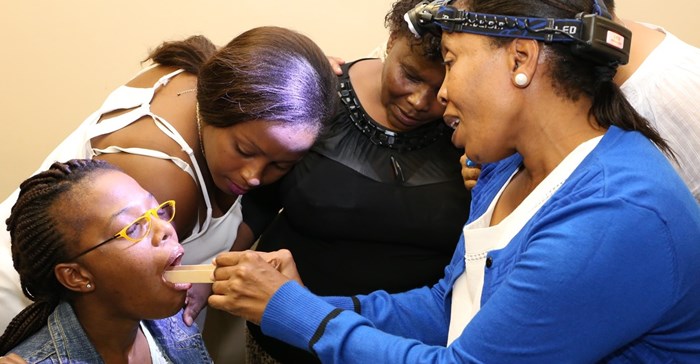KZN programme teaches early cancer detection
Head and neck cancer is an under-recognised cause of death and suffering, with a significant personal and healthcare cost. These diseases place a burden on the health system, consuming half to two thirds of hospital resources, whether human or capital.

Realising this great need, the University of KwaZulu-Natal (UKZN) and American Ivy League university, Yale, have formed an equitable educational partnership focused on addressing health disparities in South Africa. It's been working closely with the department of health to improve early detection and treatment of cancer.
Low survival rate due to delayed presentation
The five-year survival rate from head and neck cancer is less than 50% and this is largely due to delayed presentation,” says Dr. Yougan Saman, ENT head of department at UKZN and principle specialist for ENT in the KwaZulu-Natal province. “Early identification will allow cancers to be treated and often cured surgically, leading to improved patient outcomes and a decreased overall cost to the healthcare system.”
UKZN and Yale University professors and physicians will visit the Greys/Edendale Complex, Stanger, and Ngwelezane hospitals to launch the outreach programme, focusing on educating medical professionals on the causes and risk factors for head and neck cancer. It includes small group workshops reviewing the clinical assessment of the head and neck, which can be performed by primary care practitioners to screen for cancer and other diseases.
“The outreach will lead to reduced hospitals stays and less need for expensive and limited treatment like radiotherapy and chemotherapy," Saman says.
At the first outreach session at Grey’s Hospital, professors Alexandra Kejner and Benjamin Judson (Yale) highlighted risk factors and the evaluation for head and neck cancer to a large audience of sisters, general practitioners, and specialists who had gathered from as far away as Dundee.
Following this successful launch, the campaign will be expanded to Manguzi, Hlabisa, Madadeni, Port Shepstone, and Kokstad with an ongoing programme to reach more healthcare providers and thus more South African citizens in need.
Addressing problems of shared concern
The UKZN-Yale Collaborative was formed to address public health priorities in at-risk communities, while simultaneously developing research partnerships and supporting the education of trainees as both institutions. Central to this collaboration is a desire to bring together talented and dedicated professionals with complementary skills and approaches to address problems of shared concern, which has been accomplished by the creation of an exchange programme between the universities.
Moreover, this work is consistent with the UKZN's outreach programme, ENT-UKZN Cares (client access and referral expansion service), and its ENT Train the Trainer programme that seeks to equip and support clinicians as they embark on the College of Health Science’s exciting new undertaking to decentralise undergraduate training, while shifting the emphasis to primary health care and preventative medicine.




























